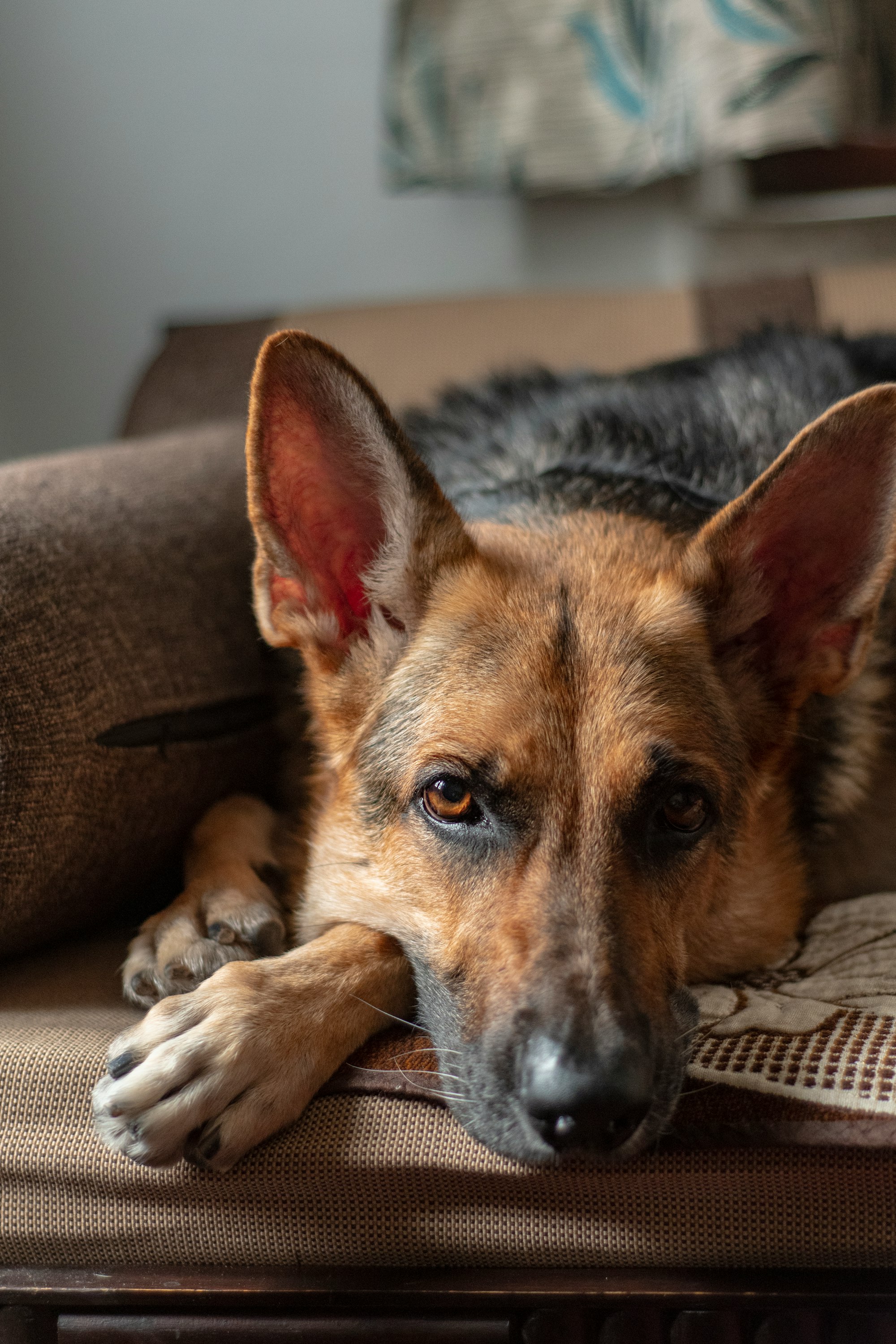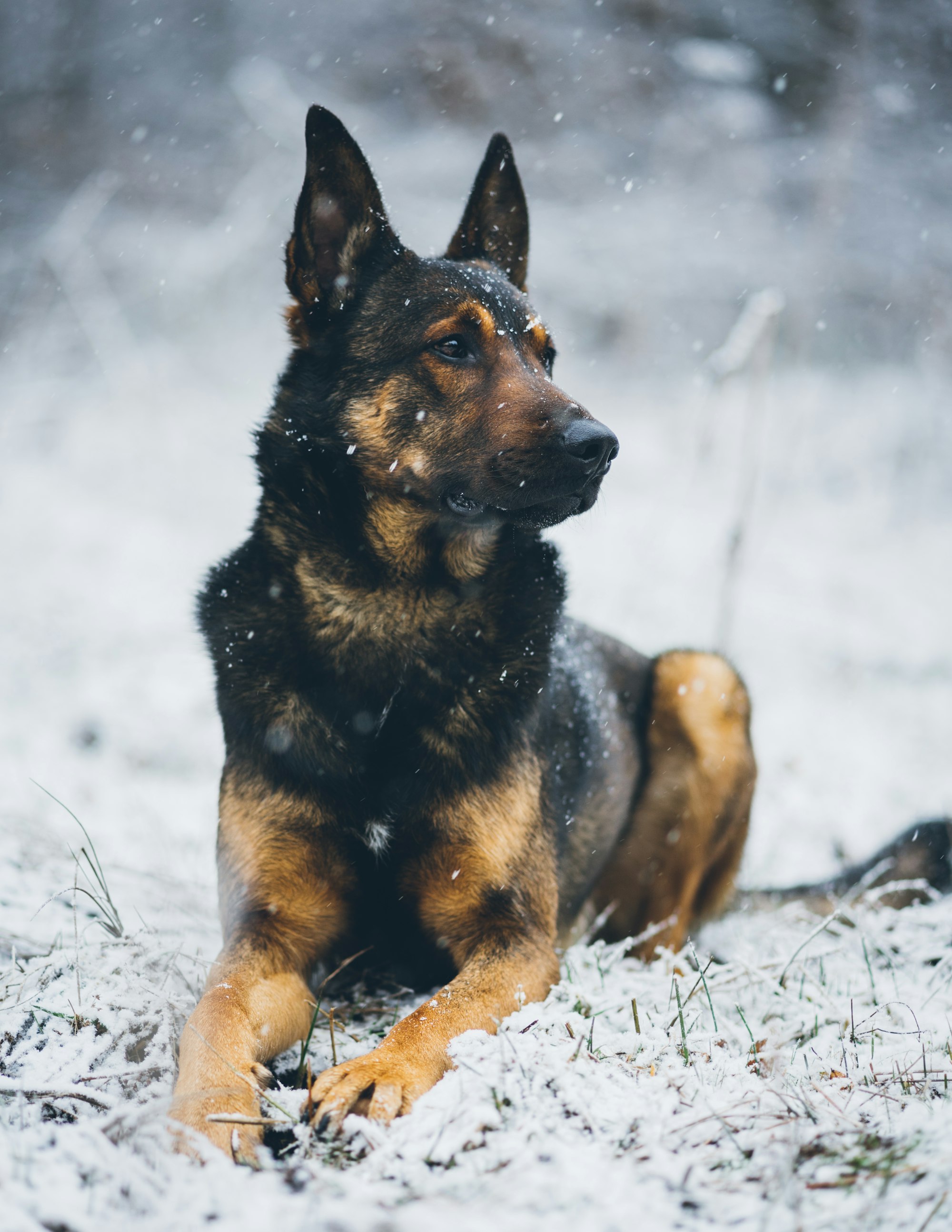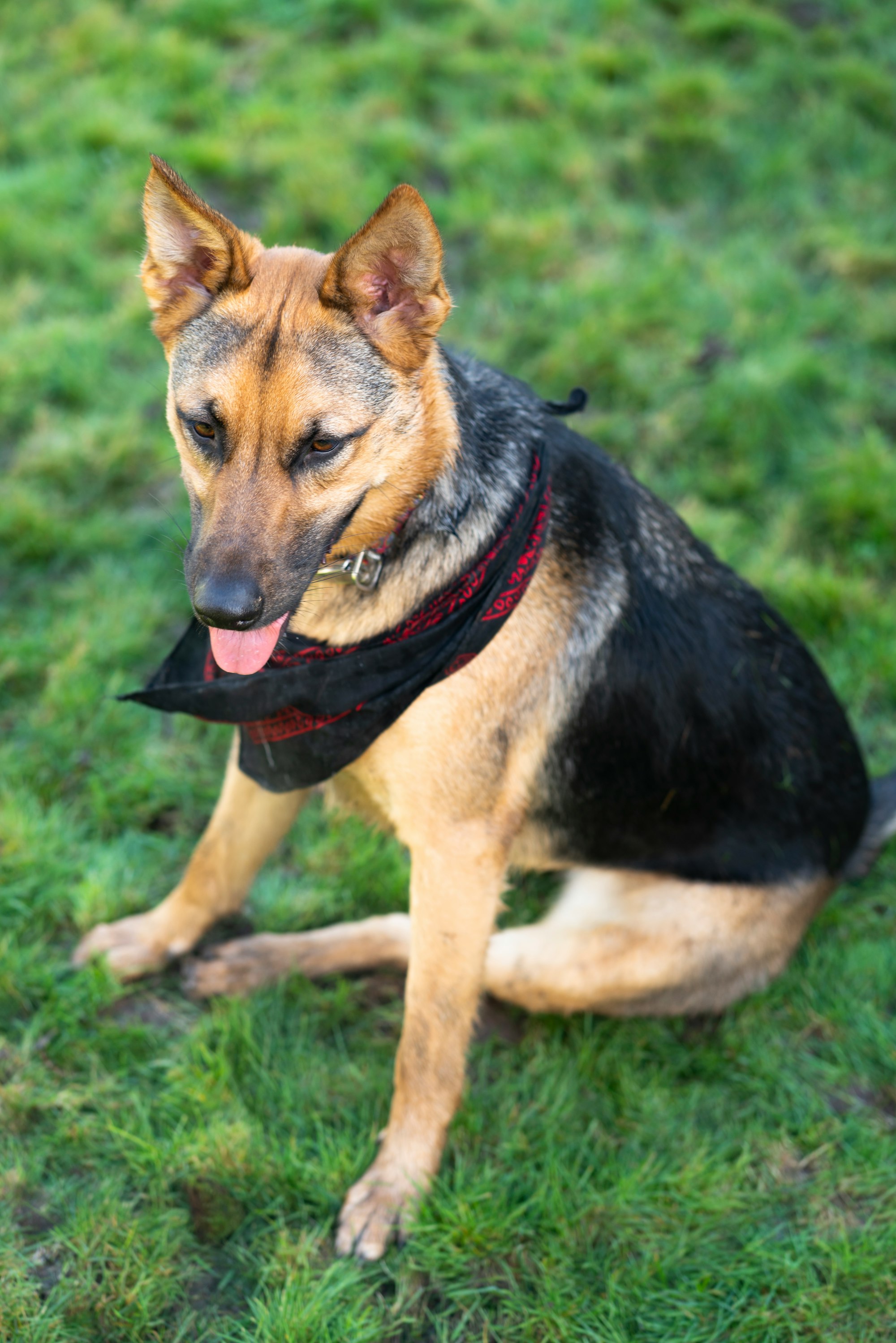The Short Haired German Shepherd, also known as the Stock Coat German Shepherd, is a variant of the German Shepherd breed. In this article, we will explore the characteristics, history, training, and care of this remarkable canine companion. Whether you're considering bringing a short-haired German Shepherd into your family or simply want to learn more about this fascinating breed, this article will provide you with valuable insights.

Understanding the Short Haired German Shepherd
Origin and History
The short-haired German Shepherd has its origins in Germany and shares its history with the German Shepherd breed. The German Shepherd breed was developed in the late 19th century by Captain Max von Stephanitz to create a versatile herding and working dog. The breed was initially used for herding sheep, but its exceptional intelligence, strength, and trainability quickly made it popular for various other tasks.
The short-haired variant, known as the Stock Coat German Shepherd, has the same lineage and characteristics as its long-haired counterpart. The distinction lies primarily in their coat length. While long-haired German Shepherds have a more flowing and luxurious coat, short-haired German Shepherds have a dense, sleek coat that requires less grooming.
Over the years, the German Shepherd breed gained recognition and popularity worldwide. It is now widely known and respected for its loyalty, courage, and versatility in various roles such as police and military work, search and rescue operations, therapy work, and as loyal family companions.
Physical Appearance
The short-haired German Shepherd is a well-built and muscular dog with a strong and athletic appearance. They have a balanced and proportionate body structure, showcasing strength and elegance. Here are some key features of their physical appearance:
· Size: Short-haired German Shepherds are typically medium to large-sized dogs. Males usually stand between 24 to 26 inches (61 to 66 cm) at the shoulder, while females are slightly smaller, measuring between 22 to 24 inches (56 to 61 cm).
· Weight: The weight of a short-haired German Shepherd can range from 65 to 90 pounds (29 to 41 kg) for males and 50 to 70 pounds (23 to 32 kg) for females.
· Coat: As the name suggests, short-haired German Shepherds have a short coat that lies close to the body. Their coat is dense and protects from varying weather conditions. The dog coat color can vary and includes shades of black, tan, sable, and occasionally solid black.
· Body Structure: They have a well-muscled body with a strong and straight back. Their chest is deep and broad, allowing for ample lung capacity. The legs are strong and straight, enabling them to move with efficiency and power.
· Head and Expression: The head of a short-haired German Shepherd is proportionate to its body size. They have distinct, noble expressions with intelligent and alert eyes. The ears are erect and pointed.
Temperament and Personality
Short-haired German Shepherds are known for their exceptional temperament and strong personality traits. Here are some characteristics that define their temperament and personality:

· Intelligence: German Shepherds, including the short-haired variant, are highly intelligent dogs. They are quick learners and excel in various training tasks. Their intelligence makes them suitable for tasks that require problem-solving skills and decision-making abilities.
· Loyalty: Short-haired German Shepherds are fiercely loyal to their families. They form strong bonds with their owners and are known for their protective nature. They are dedicated and will go to great lengths to ensure the safety and well-being of their loved ones.
· Trainability: With their intelligence and eagerness to please, short-haired German Shepherds are highly trainable. They thrive in structured training environments and enjoy learning new commands and tasks. Positive reinforcement methods work best for training them, as they respond well to praise and rewards.
· Alertness: Short-haired German Shepherds have an instinct to be watchful and alert. They make excellent guard dogs due to their ability to detect and assess potential threats quickly. Their keen senses and sharp instincts contribute to their effectiveness in police and military work.
· Playfulness: Despite their protective nature, short-haired German Shepherds have a playful side. They enjoy interactive games, physical activities, and spending quality time with their owners. Regular exercise and mental stimulation are essential to keep them happy and content.
· Family Companionship: Short-haired German Shepherds form strong bonds with their families and thrive on companionship. They are known to be great family pets and get along well with children when properly socialized. However, supervision is necessary to ensure interactions between dogs and young children are safe and respectful.
Understanding the origin, physical appearance and temperament of the short-haired German Shepherd provides valuable insights into this remarkable breed. Whether you are considering adding one to your family or simply having an appreciation for these loyal and intelligent dogs, the short-haired German Shepherd is a breed that has earned its place as a beloved companion
Training and Socialization
Training is of utmost importance when it comes to short-haired German Shepherds. Proper training helps ensure they become well-behaved and obedient companions. Here are the key reasons why training is crucial for your short-haired German Shepherd:
· Establishing Boundaries: Training allows you to establish boundaries and communicate expectations to your dog. By setting clear rules and boundaries, you can prevent unwanted behaviors and promote positive habits.
· Ensuring Safety: Training your short-haired German Shepherd is essential for their safety and the safety of others. Commands such as "sit," "stay," and "come" can help keep your dog out of harm's way and prevent accidents.
· Building Trust and Bonding: Training sessions provide an opportunity to bond with your short-haired German Shepherd. You can build trust and strengthen the bond between you and your furry friend through positive reinforcement techniques.
· Mental Stimulation: German Shepherds are intelligent good family dogs that thrive on mental stimulation. Training exercises challenge their minds and prevent boredom, which can lead to destructive behaviors. Engaging their intellect keeps them sharp, focused, and content.
· Social Acceptance: A well-trained short-haired German Shepherd is more likely to be accepted in various social settings. Their ability to respond to commands and exhibit good behavior makes them enjoyable companions in public places, around other dogs, and with unfamiliar people.

Use positive reinforcement techniques such as treats, praise, and rewards to ensure successful training. Consistency, patience, and regular practice sessions are key to helping your short-haired German Shepherd become a well-behaved and obedient member of your family.
Basic Commands and Obedience
Teaching your short-haired German Shepherd basic commands and obedience skills is an essential part of their training. Here are some fundamental commands that you should focus on:
· Sit: Teaching your dog to sit on command is one of the basic and most important commands. Hold a treat above their head and move it backward, causing them to naturally lower their hindquarters. Once they are in the sitting position, say "sit" and reward them with the treat and praise. Repeat this command consistently until they respond reliably.
· Stay: Teaching your dog to stay in one place is vital for their safety. Start by commanding them to sit. Once they are sitting, raise your hand, palm facing them, and say "Stay." Take a step backward and reward them if they remain in place. The distance and duration increase as they become more comfortable with the command.
· Come: The "come" command is crucial for calling your dog back to you. Start indoors or in a fenced area. Get down to their level, open your arms, and excitedly say "Come" while encouraging them to approach you. Reward them with treats and praise when they reach you. Gradually practice the command in more distracting environments.
Remember to be patient and consistent with your training. Short, frequent training sessions are more effective than long, infrequent ones. Use positive reinforcement to motivate and reward your short-haired German Shepherd, making the training experience enjoyable for both of you.

Socializing Your Short-Haired German Shepherd
Socialization is a crucial aspect of raising a well-rounded and confident short-haired German Shepherd. Early socialization helps your dog feel comfortable and confident in various environments, situations, and interactions. Here are some tips for socializing with your short-haired German Shepherd:
· Expose Them to Different Environments: Introduce your dog to different environments, such as parks, busy streets, and various indoor settings. Gradually expose them to different surfaces, sounds, and sights to help them adapt and feel comfortable in new surroundings.
· Introduce Them to People: Socialize your short-haired German Shepherd with different people, including family members, friends, and strangers. Encourage positive interactions by rewarding them for calm and friendly behavior. Expose them to people of different ages, appearances, and personalities to promote a well-rounded socialization experience.
· Interact with Other Dogs: Controlled and positive interactions with other dogs are essential for socializing your short-haired German Shepherd. Arrange playdates with well-behaved and friendly dogs, or enroll them in supervised group training classes. Observe their body language during interactions to ensure they are comfortable and enjoying the experience.
· Positive Reinforcement: Use positive reinforcement techniques to reward your short-haired German Shepherd for calm and appropriate behavior during socialization. Treats, praise, and playtime are effective ways to reinforce positive behavior and help them associate social experiences with positive outcomes.
By socializing your short-haired German Shepherd from an early age, you can help them develop good manners, confidence, and a friendly disposition. Socialization sets the foundation for a well-adjusted and socially adept dog, allowing them to thrive in various social situations throughout their lives.
Health and Care
Exercise and Activity Needs
Short-haired German Shepherds are an active breed and require regular exercise to keep them physically and mentally stimulated. Daily walks, playtime, and interactive activities such as agility training or fetch are excellent ways to fulfill their exercise needs. Providing them with a fenced yard to explore and play in is also beneficial.
Grooming Requirements
Despite their short coat, short-haired German Shepherds do shed moderately throughout the year. Regular brushing helps minimize shedding and keeps their coat healthy and shiny. Additionally, they require occasional baths, nail trims, and routine dental care to maintain overall hygiene.
Common Health Issues
While generally, a healthy breed, short-haired German Shepherds are prone to specific health conditions. Some of the common issues include hip dysplasia, elbow dysplasia, allergies, and digestive problems. Regular veterinary check-ups, a balanced diet, and an active lifestyle can help mitigate these risks.
Short-Haired German Shepherds as Family Pets

Compatibility with Children
Short-haired German Shepherds are known for their gentle and protective nature, making them excellent family pets. They often form strong bonds with children and can be great companions and playmates. However, it's essential to supervise interactions between dogs and young children to ensure mutual respect and safety.
Living Conditions
Short-haired German Shepherds thrive in homes with access to a securely fenced yard where they can expend their energy. They require mental and physical stimulation, so providing them with ample space to explore and play is significant. However, with proper exercise and mental stimulation, they can adapt to apartment living as long as their needs are met.
Bonding and Companionship
Short-haired German Shepherds are deeply loyal and form strong bonds with their human families. They enjoy being involved in various activities and thrive on the companionship and attention of their owners. Regular quality time, such as walks, play sessions, and training, helps strengthen the bond between you and your furry friend.
Frequently Asked Questions (FAQs)
1. Are short-haired German Shepherds good with kids?
Short-haired German Shepherds are generally excellent with children. Their gentle and protective nature makes them great family pets.
2. How often should I groom a short-haired German Shepherd?
Despite having a short coat, short-haired German Shepherds do shed moderately. Regular brushing and occasional baths are recommended to maintain their coat's health and minimize shedding.
3. Do short-haired German Shepherds require special training?
While not requiring special training, short-haired German Shepherds benefit from early socialization and consistent positive reinforcement training methods.
4. Are short-haired German Shepherds suitable for apartment living? Short-haired German Shepherds are active dogs that require regular exercise. While they can adapt to apartment living, providing them with sufficient mental and physical stimulation is essential.
5. What are the common health problems in short-haired German Shepherds?
Some common health issues in short-haired German Shepherds include hip dysplasia, elbow dysplasia, allergies, and digestive problems. Regular veterinary care and a healthy lifestyle can help prevent or manage these conditions.
Conclusion
The short-haired German Shepherd is an exceptional breed with remarkable qualities. Their intelligence, loyalty, and versatility make them suitable for various roles, from working dogs to loving family companions. By understanding their history, training needs, care requirements, and unique traits, you can provide the best possible environment for your short-haired German Shepherd to thrive.